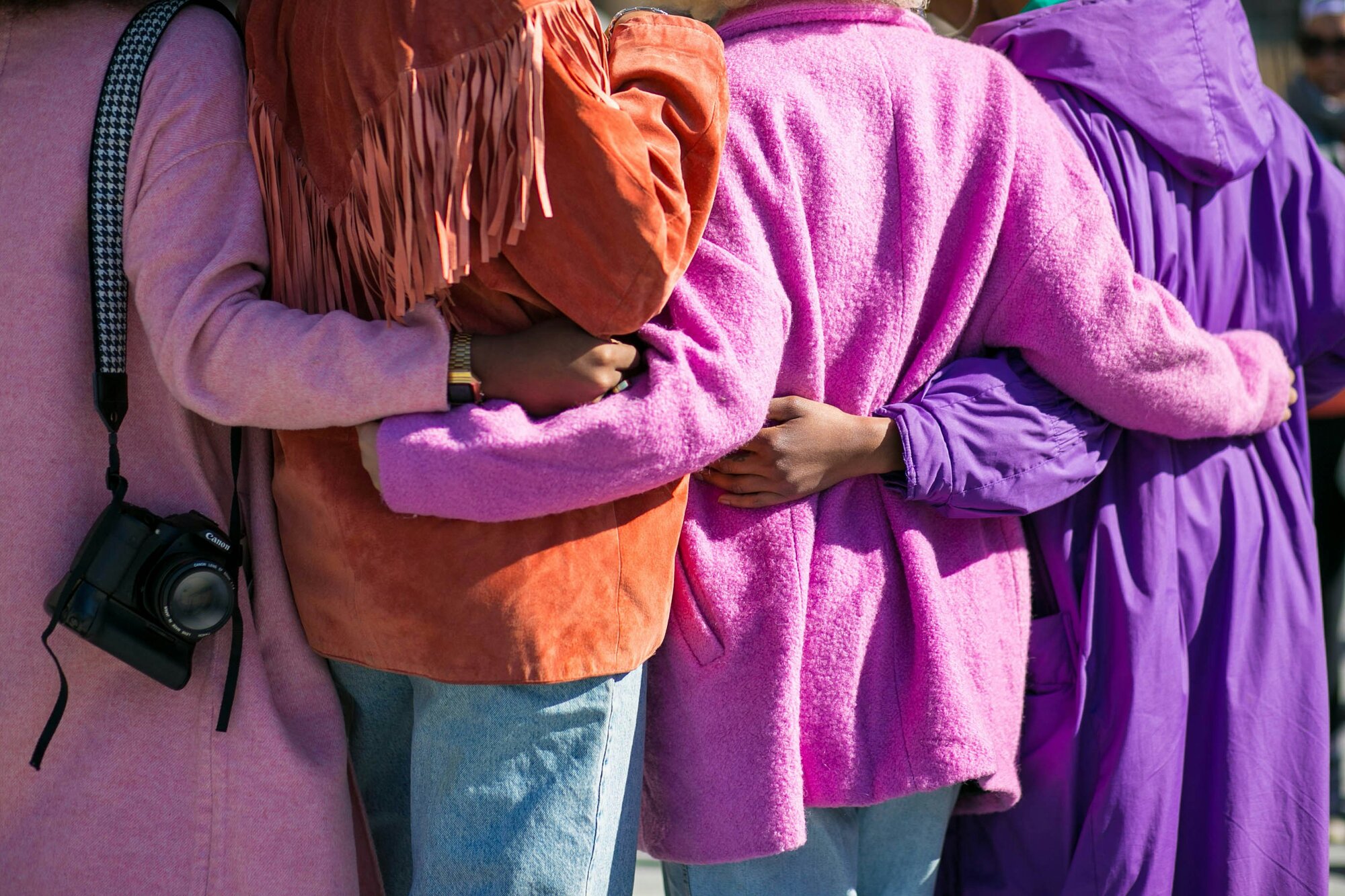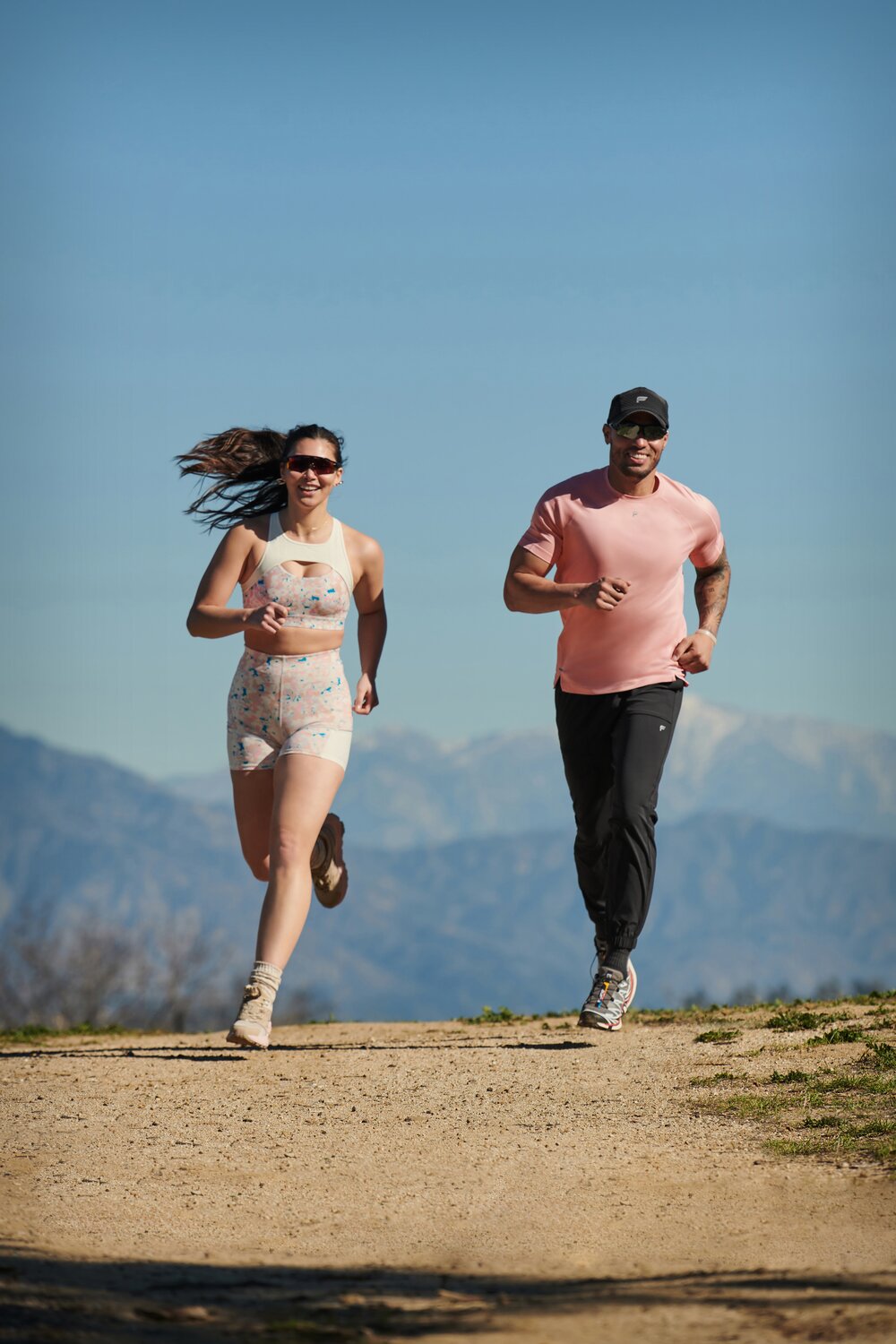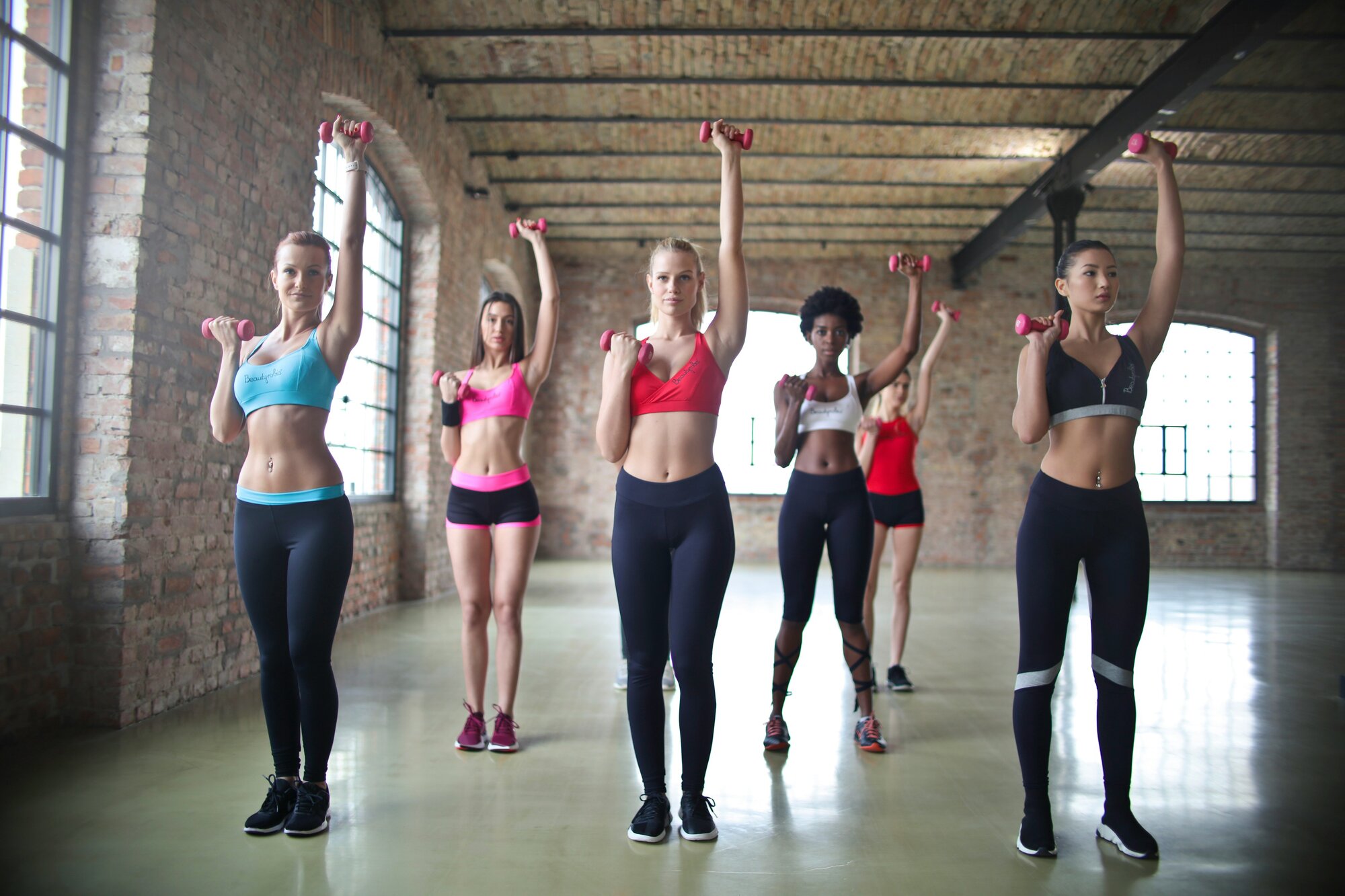Fighting the good fight – 10 female athletes treading the path for more inclusion in women’s sports
Caster Semenya
Caster Semenya is a South African middle-distance runner, who holds two Olympic gold medals and three World Champion titles over 800m. Her first win in 2008 marked the start of her decade-long domination in the field, and skyrocketed her to international star status.
That said, suspicions over her gender and sexual development have cast a shadow over her career, leading to a long battle with IAAF, (now World Athletics), the governing body of sports & athletics.
After a test revealed that the sportswoman was born with an intersex condition, Semenya underlined that she identified as female. To abide by the new athletics guidelines for women, she took hormone-suppressing drugs to lower her testosterone levels. However, these left her feeling constantly ill and made her question the safety of the treatment.
In 2018, she started her legal battle against the IAAF, which has led her all the way to the European Court of Human Rights. Even though the court ruled in her favour, as of 2024, World Athletics did not lift testosterone level regulations.
Semenya is an example of a resilient woman who – despite public scrutiny – has remained graceful in her battle for inclusion. Her strength inspires other women from marginalised communities to fight back against adversities and continue pursuing their goals.
Ellie Simmonds
Ellie Simmonds OBE is a famous Paralympic swimming champion, who, at the age of 13, won two Gold Medals at the Beijing Summer Paralympics in 2008. At the age of 14, she became the youngest recipient of a Member of the Order of the British Empire. Before turning 18, she also brought home two European Championship golds and six World Championship titles.
Simmonds, who was born with achondroplasia, a genetic disorder that results in dwarfism, was discovered by the British Swimming talent programme at ten years of age. At the time, she had already been competing against able-bodied children for two years.
Over the years, Simmonds become a swimming icon. Having retired from international competing in 2021, Simmonds became engaged in charity work. Among others, she’s a patron of the Dwarf Sports Association, which helps youngsters of short stature engage in sports, as well as a WaterAid ambassador, which advocates for access to clean water for underprivileged communities worldwide.
Kathrine Switzer
Kathrine Switzer is a female running legend – she was the first woman to register for and complete the Boston Marathon, despite event organisers forbidding women from participating in the race.
In 1967, the then 19-year-old college athlete signed up for the marathon using her initials, after being challenged by her coach, who said women were too fragile to complete it.
Switzer says that she checked the rule book and entry form, and there was “nothing about gender”. Still, soon after she started running, organisers kept trying to forcibly remove her from the track. Switzer was there to prove a point about women’s physical endurance and was determined to cross the finish line, at all costs.
After completing the race, she became the object of public interest, with journalists asking her if she was “a suffragette”, or whether the run was just a publicity stunt. Switzer continuously maintained that she simply wanted to break the doors for female runners.
Over nearly six decades, Switzer has inspired millions of women to take up running. After Boston, she has also completed thirty-six additional marathons.
Laurel Hubbard
Laurel Hubbard is a weightlifter from New Zealand, who made history as the first openly transgender athlete to participate at the Olympic Games. Hubbard, who started in male sports before transitioning to female in 2012, competed at the Tokyo 2020 Olympics in the women’s super heavyweight category. By this point of her career, Hubbard was already a multi-titled Commonwealth, Pacific Games, and World Champion, having won three gold and one silver medals.
While Hubbard rarely speaks to the media, she realises the importance of her story for others going through a similar journey of “just being me”.
In fact, when she first picked up weightlifting pre-transition, she hoped that it would help her become more masculine and find peace with her assigned gender. Hubbard’s courage to find her own identity and undergo her transition has sparked much-needed conversation on greater diversity and inclusion in sports.
In her call for more open-mindedness in sports, Hubbard said: “I’m mindful I won’t be supported by everyone but I hope that people can keep an open mind and perhaps look at my performance in a broader context. Perhaps the fact that it has taken so long for someone like myself to come through indicates that some of the problems that people are suggesting aren’t what they might seem.”
Megan Rapinoe
Megan Rapinoe is a former soccer player, who won gold with the US National Team at the London Olympics in 2012 and two FIFA World Cup titles – in 2015 and 2019. She was also awarded two of soccer’s most prestigious individual awards – Ballon d’Or Féminin and The Best FIFA Women’s Player title in 2019.
Throughout her career, which ended in retirement in 2023, Rapinoe grew into a sports icon. Her autobiography ‘One Life’, where she shared her story of breaking into a stereotypically male sport, became a New York Times bestseller.
Rapinoe came out as lesbian in 2012. She and her fiance, basketball player Sue Bird, made history as the first same-sex couple to be featured on the cover of ESPN’s “The Body Issue”.
Rapinoe uses her recognition to bring the public’s attention to topics such as LGBTQ+ rights, gender equality, battling racism, and closing the pay gap for women with jobs in sport. Her unwavering commitment to social justice makes her an inspirational figure not only for professional athletes, but for all women.
Michelle Wie West
Michelle Wie West is a former professional US golfer, who won the 2014 US Women's Open. She is, however, best known as the early-2000s Wunderkind of the sport. At the age of 10, Wie West became the youngest player to participate in an amateur USGA championship. Turning professional at just 16, she garnered a lot of attention from international media and the sports community. Throughout her career, she competed not only against women but also men, demonstrating that both genders can be equals on the course.
What makes Wie West such an important figure for young girls entering sports isn’t, however, how many medals or recognitions she’s garnered. Paradoxically, it’s how well she tackled the pressure of being called the “next big thing” in golf and the unfortunate injuries that followed.
Wie West retired in 2023, but remains an influential figure in golf and women’s sports. She is now a mentor to Rose Zhang, who – like Wie West – has been called the future of golf. She is also a strong advocate for pay equity for female athletes. Her legacy lives on, helping young girls of all backgrounds see the value of determination and hard work in pursuing dreams.
Simone Biles
It’s no understatement to say that Simone Biles is one of the greatest gymnasts to have walked the face of the earth. As of 2024, she holds a whopping 30 World Championship medals.
Her performance at the Rio de Janeiro Olympics in 2016 skyrocketed her to stardom, as Biles was the first female gymnast to ever win four gold medals at the same Olympics event.
Biles’ unparalleled talent is just one of the many reasons why she’s an icon for many aspiring athletes. She encountered numerous obstacles that affected her personal life and sports career. For the first six years of her life, Biles was placed in and out of foster care along with her three siblings. Her professional gymnast career, which began at age 14, was also marked by intense pressure and competition. Despite these obstacles, Biles showed dedication and strength – well beyond her years.
Biles is now also known as an advocate for mental health support in sports. She admitted that, at the 2020 Tokyo Olympics, she had to withdraw from several competitions due to the “twisties”, i.e., loss of balance and motor skills commonly caused by psychological pressure. The gymnast discussed her struggles with full transparency to help destigmatize mental health problems among athletes. Her openness about mental struggles earned her a spot on Time Magazine’s 100 most influential figures list.
Tatyana McFadden
Tatyana McFadden is an American Paralympic champion, commonly called the “fastest woman in the world”. This title is hardly an overstatement, given that she’s won 20 medals at several Paralympics, starting in Athens in 2004 to Tokyo in 2021.
McFadden’s life is a story of resilience and determination, which can act as inspiration not only for professional athletes, but each and every one of us. Born in the former Soviet Union with spina bifida, a congenital defect that left her paralyzed from the waist down, she walked on her hands for the first six years of her life. Her life changed when she met Deborah McFadden, a US Department of Health disabilities commissioner who decided to adopt Tatyana upon her visit to an orphanage in Russia.
While it might be surprising, McFadden didn’t get into sports to compete. Rather, she took up multiple sports to maintain muscle strength, and her talent was discovered along the way.
Fast forward to today, and she’s not only a multi-paralympic champion, but also a holder of 20 World Championship medals and a ten-time New York Marathon Runner.
In 2017, McFadden made it to Forbes' "30 Under 30" list as the “Best Female Athlete of the 2016 Paralympic Games”, serving as a role model not only for fellow wheelchair racers, but athletes of all ages, backgrounds, and physical dispositions.
Venus Williams
Venus Williams hardly needs any introduction; suffice it to say, this list of inspirational women would be incomplete without her. She has now entered the 31st (!) year of her professional tennis career, studded with seven single Grand Slam titles and four Olympic golds. On top of terms like “talent”, “determination”, and “strength” that could be used to praise her achievements, one can now also add “longevity” to the list.
Along with her sister Serena, Venus transformed women’s tennis by introducing a more “aggressive” style, with serves exceeding the speed of 200 km/h – one of the fastest ever recorded in the female game.
Over the years, Venus Williams made a name for herself as a gender equality rights advocate, battling bias in sports. She was one of the key figures in the fight for equalisation of prize money at Grand Slam events. Partnering up with UNESCO and receiving endorsements from politicians for the likes of Tony Blair, the Williams-led effort proved successful. Wimbledon introduced equal prizes for male and female winners in 2007, and Roland Garros followed in their footsteps the year after. As the tennis player said, this was a success because, “somewhere in the world a little girl is dreaming of holding a giant trophy in her hands and being viewed as an equal to boys who have similar dreams.”
Yusra Mardini
Yusra Mardini is a Syrian swimmer and Olympian, whose incredible bravery and determination were the subject of the BAFTA-nominated movie, “The Swimmers”. Mardini’s promising swimming career and dreams of being part of the Syrian Olympic team were shattered when she fled her home country amidst the Syrian Civil War.
Along with her sister, who was also a titled swimming prodigy, Mardini decided to board an overcrowded tender boat that departed from a beach in Turkey aiming for Greece. Soon after, the dinghy started sinking, putting over 20 refugee lives at risk. Being two of a handful of passengers who could swim, the Mardini sisters jumped into the water and, against all odds, pulled the boat safely to shore.
This traumatic event did not break Mardini. She continued to tirelessly fight for a spot on the Refugee Olympic Team in Rio, under the endorsement of a swimmers club in Berlin. Her dream came to fruition, bringing Mardini’s incredible story – that of life-saving and sports determination – to the front pages of news sites worldwide. In 2017, Mardini became the youngest UNHCR Goodwill Ambassador. Having retired from sports in 2023, she is now fully dedicated to advocating for refugee rights.



